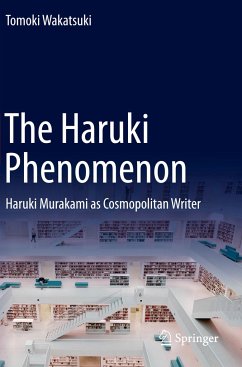This book explores the idea of a new cosmopolitan Japanese identity through a socio-cultural analysis of contemporary Japanese writer Haruki Murakami. It is the first monograph to apply the idea of cosmopolitanism to this writer's global popularity widely known as the "Haruki phenomenon".By pioneering an enquiry into Murakami's cosmopolitanism, this book aims to overcome the prevailing myth of "Japaneseness"(Nihonjinron) as a form of self-identification for Japanese, and propose an alternative approach for contemplating contemporary Japanese cultural identity. Socio-cultural analysis of this author and his works shall establish Murakami's cosmopolitan qualities and how they contribute to the cultural phenomenon of globalization. Furthermore, this book will introduce the idea of "everyday cosmopolitanism" as a relevant concept to address an emergent global cultural sphere. Unlike the traditional model of cosmopolitanism, which is sometimes regarded as idealist and elitist, "everyday cosmopolitanism" encompasses the everyday spheres of ordinary people. Tomoki Wakatsuki argues that the Haruki phenomenon, as a global and local event, echoes this important social trend today. Murakami's departure from conventional notions of Japanese identity offers an alternative perception of identity and belonging that is useful for situating Japanese identity within a global context. This text will be of interest to students and scholars of cultural studies, global literature, contemporary Japanese literature, cultural cosmopolitanism and the global cultural sphere.
Bitte wählen Sie Ihr Anliegen aus.
Rechnungen
Retourenschein anfordern
Bestellstatus
Storno








